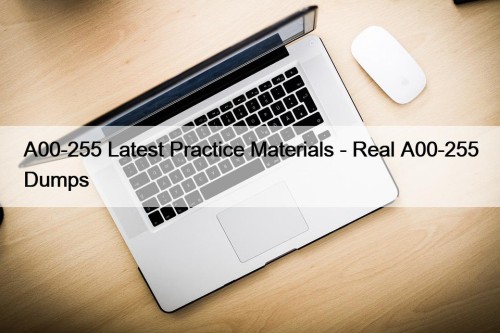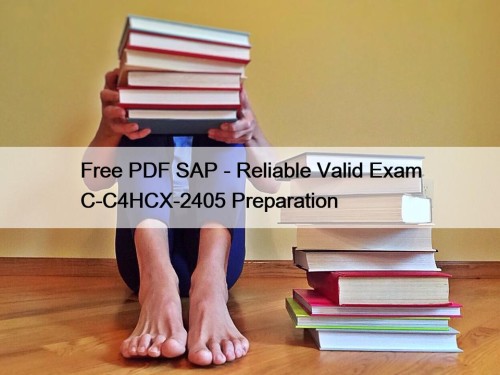Most Popular
 A00-255 Latest Practice Materials - Real A00-255 Dumps
A00-255 Latest Practice Materials - Real A00-255 Dumps
No doubt the SAS Predictive Modeling Using SAS Enterprise Miner ...
 Free PDF SAP - Reliable Valid Exam C-C4HCX-2405 Preparation
Free PDF SAP - Reliable Valid Exam C-C4HCX-2405 Preparation
This updated SAP C-C4HCX-2405 exam study material of TestInsides consists ...
 HOT SPLK-2003 New Dumps Free 100% Pass | Trustable Splunk Test Splunk Phantom Certified Admin Cram Pass for sure
HOT SPLK-2003 New Dumps Free 100% Pass | Trustable Splunk Test Splunk Phantom Certified Admin Cram Pass for sure
Your aspiring wishes such as promotion chance, or higher salaries ...



HOT SPLK-2003 New Dumps Free 100% Pass | Trustable Splunk Test Splunk Phantom Certified Admin Cram Pass for sure

Your aspiring wishes such as promotion chance, or higher salaries or acceptance from classmates or managers and so on. And if you want to get all benefits like that, our SPLK-2003 training quiz is your rudimentary steps to begin. So it is undisputed that you can be prepared to get striking outcomes if you choose our SPLK-2003 Study Materials. And so many of our loyal customers have achieved their dreams with the help of our SPLK-2003 exam questions.
Splunk SPLK-2003 (Splunk Phantom Certified Admin) certification exam is an excellent way for IT professionals to validate their skills and knowledge in the administration of the Splunk Phantom platform. Passing the exam demonstrates that the candidate has a solid understanding of the platform and is capable of managing and supporting Splunk Phantom deployments.
>> SPLK-2003 New Dumps Free <<
SPLK-2003 test questions: Splunk Phantom Certified Admin & SPLK-2003 pass-king dumps
ActualTestsIT gives you unlimited online access to SPLK-2003 certification practice tools. You can instantly download the SPLK-2003 test engine and install it on your PDF reader, laptop or phone, then you can study it in the comfort of your home or while at office. Our SPLK-2003 test engine allows you to study anytime and anywhere. In addition, you can set the time for each test practice of SPLK-2003 simulate test. The intelligence and customizable SPLK-2003 training material will help you get the SPLK-2003 certification successfully.
Splunk Phantom Certified Admin Sample Questions (Q64-Q69):
NEW QUESTION # 64
What are the differences between cases and events?
- A. Cases: contain a collection of containers.
Events: contain potential threats. - B. Case: potential threats.
Events: identified as a specific kind of problem and need a structured approach. - C. Cases: incidents with a known violation and a plan for correction.
Events: occurrences in the system that may require a response. - D. Cases: only include high-level incident artifacts.
Events: only include low-level incident artifacts.
Answer: C
Explanation:
Explanation
Cases and events are two types of containers in Phantom. Cases are incidents with a known violation and a plan for correction, such as a malware infection, a phishing attack, or a data breach. Events are occurrences in the system that may require a response, such as an alert, a log entry, or an email. Cases and events can contain both high-level and low-level incident artifacts, such as IP addresses, URLs, files, or users. Cases do not contain a collection of containers, but rather a collection of artifacts, tasks, notes, and comments. Events are not necessarily potential threats, but rather indicators of potential threats. Reference, page 9.
NEW QUESTION # 65
After a playbook has run, where are the results stored?
- A. Case
- B. Container
- C. Log file
- D. Splunk Index
Answer: B
Explanation:
The correct answer is C because after a playbook has run, the results are stored in the container that triggered the playbook. The container is a data object that represents an event or a case in Phantom. The container contains information such as the name, the description, the severity, the status, the owner, and the labels of the event or case. The container also contains the artifacts, the action results, the comments, the notes, and the phases and tasks associated with the event or case. The answer A is incorrect because after a playbook has run, the results are not stored in a Splunk index, which is a data structure that stores events from various data sources in Splunk. The Splunk index is not directly accessible by Phantom, but can be queried by Phantom using the Splunk app. The answer B is incorrect because after a playbook has run, the results are not stored in a case, which is a type of container that represents a security incident in Phantom. The case is a subset of the container, and not all containers are cases. The answer D is incorrect because after a playbook has run, the results are not stored in a log file, which is a file that records the activities or events that occur in a system or a process. The log file is not a data object in Phantom, but can be a data source for Phantom.
Reference: Splunk SOAR User Guide, page 19. In Splunk Phantom, after a playbook has been executed, the results of the actions within that playbook are stored in the container associated with the event. A container is a data structure that encapsulates all relevant information and data for an incident or event within Phantom, including action results, artifacts, notes, and more. The container allows users to see a consolidated view of all the data and activity related to a particular event. These results are not stored in the Splunk Index, a separate case, or a log file as their primary storage but may be sent to a Splunk index for further analysis.
NEW QUESTION # 66
A user has written a playbook that calls three other playbooks, one after the other. The user notices that the second playbook starts executing before the first one completes. What is the cause of this behavior?
- A. Synchronous execution has not been configured.
- B. The steep option for the second playbook is not set to a long enough interval.
- C. The first playbook is performing poorly.
- D. Incorrect Join configuration on the second playbook.
Answer: A
Explanation:
The correct answer is D because synchronous execution has not been configured. Synchronous execution is a feature that allows you to control the order of execution of playbook blocks. By default, Phantom executes playbook blocks asynchronously, meaning that it does not wait for one block to finish before starting the next one. This can cause problems when you have dependencies between blocks or when you call other playbooks. To enable synchronous execution, you need to use the sync action in the run playbook block and specify the name of the next block to run after the called playbook completes. See Splunk SOAR Documentation for more details.
In Splunk SOAR, playbooks can be executed either synchronously or asynchronously. Synchronous execution ensures that a playbook waits for a called playbook to complete before proceeding to the next step.
If the second playbook starts executing before the first one completes, it indicates that synchronous execution was not configured for the playbooks. Without synchronous execution, playbooks will execute independently of each other's completion status, leading to potential overlaps in execution. This behavior can be controlled by properly configuring the playbook execution settings to ensure that dependent playbooks complete their tasks in the desired order.
NEW QUESTION # 67
Seventy can be set during ingestion and later changed manually. What other mechanism can change the severity or a container?
- A. Service level agreement (SLA) expiration
- B. Playbooks
- C. Actions
- D. Notes
Answer: B
Explanation:
Explanation
Playbooks can change the severity of a container by using the set severity action block. This block allows the user to specify a new severity level for the container or use a variable from a previous action result. Notes and actions do not affect the severity of a container, and SLA expiration only affects the status of the container, not the severity. Reference, page 10.
NEW QUESTION # 68
Which of the following can be edited or deleted in the Investigation page?
- A. Artifact values
- B. Action results
- C. Approval records
- D. Comments
Answer: D
Explanation:
On the Investigation page in Splunk SOAR, users have the ability to edit or delete comments associated with an event or a container. Comments are generally used for collaboration and to provide additional context to an investigation. While action results, approval records, and artifact values are typically not editable or deletable to maintain the integrity of the investigative data, comments are more flexible and can be managed by users to reflect the current state of the investigation.
Investigation page allows you to view and edit various information and data related to an event or a case. One of the things that you can edit or delete in the Investigation page is the comments that you or other users have added to the activity feed. Comments are a way of communicating and collaborating with other users during the investigation process. You can edit or delete your own comments by clicking on the three-dot menu icon next to the comment and selecting the appropriate option. You can also reply to other users' comments by clicking on the reply icon. Therefore, option B is the correct answer, as it is the only option that can be edited or deleted in the Investigation page. Option A is incorrect, because action results are the outputs of the actions or playbooks that have been run on the event or case, and they cannot be edited or deleted in the Investigation page. Option C is incorrect, because approval records are the logs of the approval requests and responses that have been made for certain actions or playbooks, and they cannot be edited or deleted in the Investigation page. Option D is incorrect, because artifact values are the data that has been collected or generated by the event or case, and they cannot be edited or deleted in the Investigation page.
1: Start with Investigation in Splunk SOAR (Cloud)
NEW QUESTION # 69
......
If you are boring about daily life and want to improve yourself, getting a practical Splunk certification will be a nice choice that will improve your promotion advantages. SPLK-2003 exam study guide will be valid helper which will help you clear exams 100% for sure. Thousands of candidates successfully pass exams and get certifications you desire under the help of our ActualTestsIT's SPLK-2003 Dumps PDF files.
Test SPLK-2003 Cram: https://www.actualtestsit.com/Splunk/SPLK-2003-exam-prep-dumps.html
- 2025 100% Free SPLK-2003 –High Pass-Rate 100% Free New Dumps Free | Test SPLK-2003 Cram 🥾 Search for “ SPLK-2003 ” and easily obtain a free download on [ www.prep4pass.com ] 🌘SPLK-2003 Exam Questions And Answers
- Valid SPLK-2003 Test Questions 📊 Valid SPLK-2003 Test Questions ✳ Latest SPLK-2003 Cram Materials ⚫ Immediately open ⏩ www.pdfvce.com ⏪ and search for ▶ SPLK-2003 ◀ to obtain a free download ❕SPLK-2003 Exam Questions And Answers
- Valid SPLK-2003 Exam Labs 💿 SPLK-2003 Valid Torrent 🤽 New SPLK-2003 Test Price ✡ Open “ www.pass4test.com ” enter 《 SPLK-2003 》 and obtain a free download 🤙SPLK-2003 Exam Topics Pdf
- Reliable SPLK-2003 Exam Testking 🚏 SPLK-2003 Latest Exam Simulator 😕 Sample SPLK-2003 Questions 🙇 Search for ⇛ SPLK-2003 ⇚ and download exam materials for free through ☀ www.pdfvce.com ️☀️ 👶Valid SPLK-2003 Exam Labs
- Free PDF Quiz 2025 Splunk Useful SPLK-2003 New Dumps Free 🕣 Simply search for { SPLK-2003 } for free download on “ www.free4dump.com ” ⚫Actual SPLK-2003 Test Pdf
- SPLK-2003 Real Study Dumps Would be a Reliable Exam Questions for You 📁 Download ( SPLK-2003 ) for free by simply entering ⇛ www.pdfvce.com ⇚ website 🛴SPLK-2003 Valid Test Camp
- SPLK-2003 Pass Guarantee 📈 Actual SPLK-2003 Test Pdf 🚙 SPLK-2003 Pass Guarantee 👽 “ www.passcollection.com ” is best website to obtain ⏩ SPLK-2003 ⏪ for free download 👯SPLK-2003 Exam Lab Questions
- SPLK-2003 Certification Sample Questions ⭐ SPLK-2003 Certification Sample Questions 👒 SPLK-2003 Valid Torrent 📞 Go to website ➤ www.pdfvce.com ⮘ open and search for { SPLK-2003 } to download for free 🧤SPLK-2003 Exam Questions And Answers
- SPLK-2003 Pass Guarantee 📕 Reliable SPLK-2003 Exam Testking 😄 Reliable SPLK-2003 Exam Testking 📏 Search on ➤ www.exams4collection.com ⮘ for ⇛ SPLK-2003 ⇚ to obtain exam materials for free download 🤾SPLK-2003 Certification Sample Questions
- Free PDF Quiz 2025 Splunk Useful SPLK-2003 New Dumps Free 🍮 Immediately open ➥ www.pdfvce.com 🡄 and search for ⇛ SPLK-2003 ⇚ to obtain a free download 🎓SPLK-2003 Pass Guarantee
- SPLK-2003 Certification Sample Questions 🌶 SPLK-2003 Valid Torrent ⏬ Valid SPLK-2003 Test Questions 🔰 Open ⇛ www.itcerttest.com ⇚ and search for ➥ SPLK-2003 🡄 to download exam materials for free 👐Sample SPLK-2003 Questions
- SPLK-2003 Exam Questions
- 霸王龍.官網.com 武森天堂.官網.com www.5000n-13.duckart.pro 台獨天堂.官網.com shufaii.com hovih34342.ja-blog.com 40bbk.com www.zhongqiyuan.vip:8081 dh.ejxr.cn 神泣天堂.官網.com
Tags: SPLK-2003 New Dumps Free, Test SPLK-2003 Cram, SPLK-2003 Latest Test Cram, Latest SPLK-2003 Exam Book, Reliable SPLK-2003 Test Vce